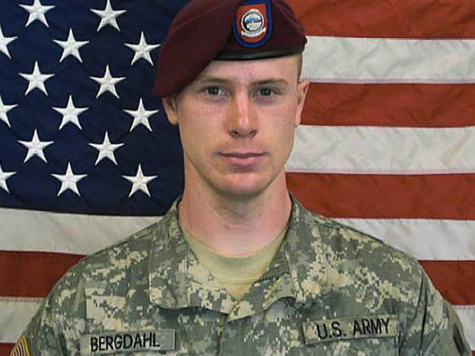The Pentagon continues to deny allegations that it paid a ransom to an Afghan in a failed attempt to secure the release of Sgt. Bowe Bergdahl.
On Thursday, Rear Adm. John Kirby, the Pentagon secretary, did say that “it is a fact” that the U.S. does, “on occasion,” pay money “to obtain information, sometimes in the field,” but added that did not happen in the Bergdahl’s case.
Sgt. Bergdahl was released in May as part of a controversial exchange for five senior Taliban commanders detained at the U.S. military detention center in Guantanamo Bay, Cuba.
Bergdahl was held captive for nearly five years by the Haqqani network, a branch of the Taliban that operates in the Afghanistan-Pakistan border region.
On November 5, Rep. Duncan Hunter (R-Calif.), a member of the House Armed Services Committee, sent a letter to Defense Secretary Chuck Hagel claiming that a ransom was paid for Sgt. Bergdahl to an “Afghan intermediary who ‘disappeared’ with the money and failed to facilitate Bergdahl’s release in return.”
“The payment was made in January-February 2014, according to sources, through Joint Special Operations Command (JSOC),” states the letter. “This is supported by the fact that JSOC did pursue at least two lines of effort for Bergdahl: a kinetic rescue operation, if necessary, and; a payment to the Haqqani Network to gain Bergdahl’s release.”
Kirby denied those allegations when questioned by reporters in the Pentagon on Thursday.
“I would tell you, and we’ve said this before, there was no ransom offered,” he said. “There was no ransom paid. There was no money exchanged at all to secure Sergeant Bergdahl’s release nor was there an attempt to do so that failed.”
“We will respond to the congressman appropriately and in due course,” answered Kirby when asked why the Pentagon has not officially responded to Rep. Duncan’s November 5 letter.
In the letter, Duncan acknowledged that “Pentagon officials have denied that a payment was even considered,” but nevertheless, he asked Secretary Hagel to “confirm whether a payment of any kind was considered and/or paid and whether the same consideration, for others in captivity, is still being given by JSOC.”
The Army is investigating claims that Bergdahl deserted his post in Afghanistan before he was taken hostage by Taliban fighters in June 2009. Men who served in Sgt. Bergdahl’s unit have said he deserted his post.
Kirby denied allegations that the Pentagon is deliberately withholding the results of the Army’s Bergdahl investigation, saying the results are being reviewed by staff.
“As I understand it, the work is complete and it is now in review in staffing,” he said, later adding, “As you know in this building that can sometimes take a while, especially for major investigations like this. … I’ve seen no indication that there’s been any deliberate hold-up of it.”
The Obama administration has stressed that it opposes paying ransoms to jihadist groups, notes national security correspondent Bill Gertz in an article for The Washington Times.
“Officials said the Bergdahl ransom was an unspecified large amount of money and that the exchange was handled by the Army’s elite Delta Force anti-terrorism squad,” he reports. “The FBI also was involved in the ransom payment attempt and was waiting inside Afghanistan’s border with North Waziristan when the release failed, confirming that it had been a scam.”
“The Pentagon’s spin on the payment is that the money was not technically a ransom,” adds the article. “Instead, defense officials are claiming the cash was intelligence money paid to a source for information that would lead to the release of Sgt. Bergdahl.”

COMMENTS
Please let us know if you're having issues with commenting.